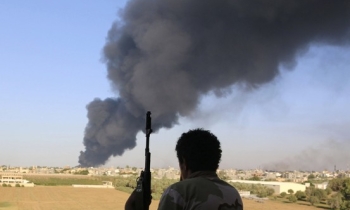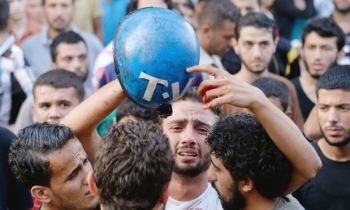A journalist from the pan-Arab satellite channel Al-Arabiyya has been expelled from the Gaza Strip to Egypt, allegedly because of his coverage of Israel’s military operation in Gaza, and its aftermath, Media Line website has reported.
Police belonging to the Interior Ministry in the Hamas’ Gaza-based deposed government ordered Al-Arabiyya correspondent, Wa'il Issam, to leave the Gaza Strip immediately. Issam said plainclothes police forces turned up at his office in Gaza and told him to gather his possessions and leave for Egypt, but they did not give a reason. He said the police accompanied his car until he reached the Rafah crossing on the Gaza-Egypt border.
Some details: [Link]
Issam blamed Hamas spokesman Ayman Taha for ordering his expulsion from Gaza, but said all other Hamas officials he spoke with assured him he had nothing to worry about.
Hamas insists Issam’s eviction has nothing to do with his journalistic work or the positions of Al-Arabiyya, but was a security-related decision that was meant to protect Issam’s life.
According to a report in the London-based Al-Hayyat, Hamas was angry with him because Issam aired reports that were not consistent with Hamas policies in covering Israel’s Gaza operation and its aftermath.
However, Issam denied this was the case in an exclusive interview with The Media Line. He said there were other political motivations at play. “I covered the Iraq war and the post-Saddam Iraqi government jailed me for two weeks. People say there’s a close connection between Iran and the Hamas government. I’m blacklisted in Iraq by the government. The government in Iraq is Shi’ite and is well-connected to Iran,” he said.
Also, Issam said the reports he aired during the war about the tunnels and the rockets fired by Hamas were no different from reports of other journalists, who did not face any problems. The threats of his expulsion were made before the reports were aired, he said.
Issam prepared several investigative reports that revealed what was really happening in Gaza. He was one of the first reporters to enter Gaza and cover events there first-hand with a camera, ten days after the offensive began.









